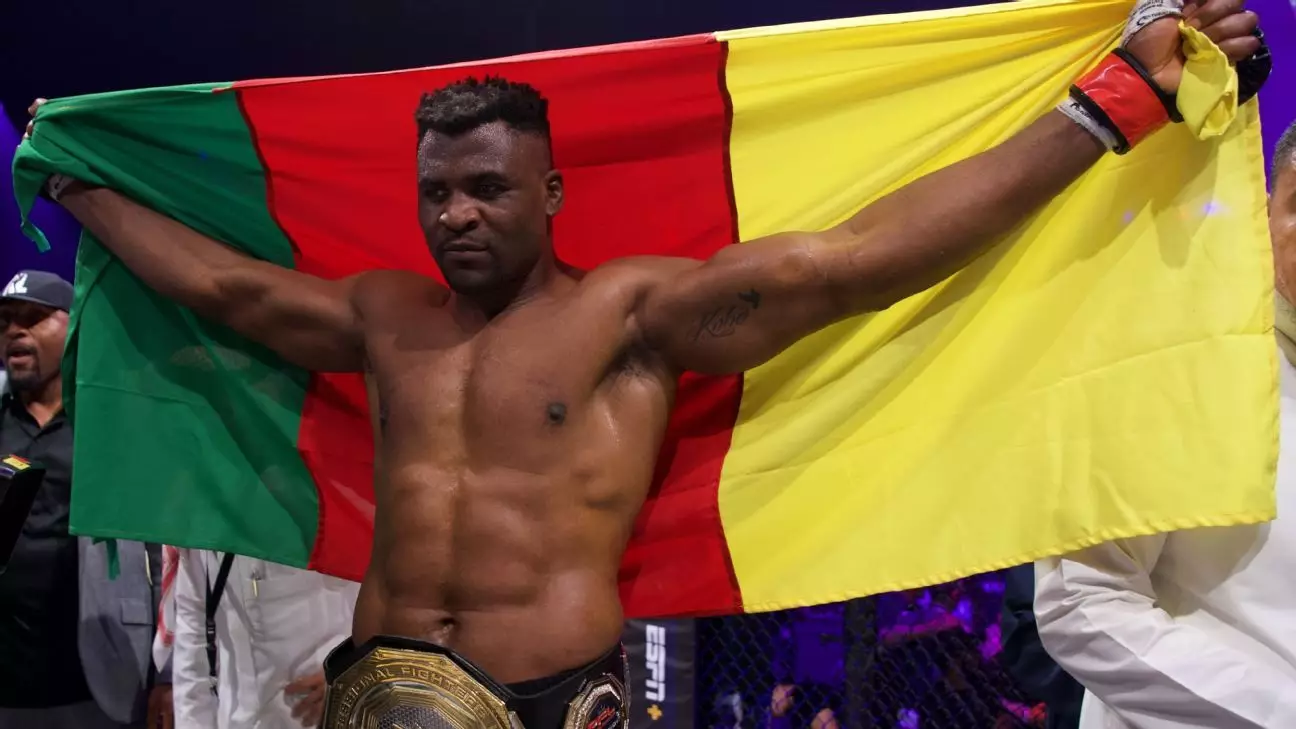Francis Ngannou: A Fighter’s Journey Beyond UFC Stigmas
It’s not every day that you come across a story as compelling as Francis Ngannou’s. Many of us know him as the powerhouse in the octagon, but his journey is much more than just a tale of physical prowess. Personally, I’ve always been fascinated by stories of resilience and triumph over adversity, and Ngannou’s narrative is no exception. It’s a story filled with ups and downs, determination, and a relentless pursuit of self-worth in an industry known for its fierce competition.
Ngannou’s recent comeback to mixed martial arts has been nothing short of inspiring. After enduring unimaginable personal tragedies, including the loss of his young son, he took a brave step away from the UFC to explore new opportunities. It’s not easy stepping away from something so familiar, but Ngannou did it with grace, venturing into boxing and taking on renowned fighters like Tyson Fury and Anthony Joshua. His return to MMA was marked by a decisive win over PFL heavyweight champion Renan Ferreira in Abu Dhabi—a victory that resonated deeply within the MMA community.
Key Takeaways
- Ngannou’s journey is about more than just fighting; it’s about overcoming personal and professional challenges.
- His decision to leave the UFC highlights ongoing debates about fighter compensation and autonomy.
- The potential for cross-promotion fights could transform the MMA landscape.
Breaking Away from UFC
In early 2023, Ngannou made the bold decision to leave the UFC. It wasn’t just about dissatisfaction with financial terms; it was also about gaining control over his career. For many fighters, the UFC represents the pinnacle of success, but for Ngannou, it became clear that there were more opportunities beyond its confines. When he signed with the Professional Fighters League (PFL), it opened new doors that he had never imagined possible before. This move wasn’t just strategic—it was deeply personal.
Ngannou’s departure from UFC sparked significant attention and criticism, especially from Dana White. White’s comments suggesting that Ngannou avoided a fight with Jon Jones and missed out financially by leaving the UFC added fuel to ongoing debates about fighter autonomy and compensation. But Ngannou has been vocal in challenging these narratives, asserting that his success outside the UFC speaks volumes. It’s a powerful reminder that sometimes stepping away from the norm can lead to unexpected victories.
The Financial Narrative
The conversation around fighter compensation is an important one. Ngannou’s claim that he’s earned more from boxing than he ever could in the UFC sheds light on a critical issue within combat sports. Reports suggest he made $20 million from two high-profile boxing matches—a figure that contrasts sharply with what fighters typically earn in the UFC. This discrepancy raises questions about transparency and fairness in how fighters are compensated for their hard work and dedication.

Ngannou has openly discussed outstanding debts owed to him by the UFC, pointing to issues with back payments for previous fights. These financial disputes highlight broader issues within the sport regarding stability and security promised by promotions like the UFC. As fans and followers of MMA, it’s essential to consider whether our favorite fighters are receiving their fair share for risking everything inside the cage.
The Quest for Jon Jones
Part of what makes Ngannou’s journey so intriguing is his ongoing desire to face Jon Jones—a matchup that has fans buzzing with anticipation. With Jones preparing to challenge Stipe Miocic, Ngannou’s interest in a potential cross-promotion fight grows stronger each day. This isn’t just another fight; it’s an opportunity to reshape the MMA landscape entirely by bringing together two titans of the sport in what could be an epic showdown.
However, this dream matchup faces obstacles rooted in Dana White’s own perceptions. Ngannou has implied that White might be the primary barrier preventing this clash from happening. Despite these challenges, there remains hope that influential figures like Saudi Arabia’s Turki Alalshikh—who has previously supported Ngannou—might help bridge these gaps through global investments and negotiations.
Final Thoughts
Francis Ngannou’s story is one of courage and resilience—not just against opponents inside the octagon but also against systemic challenges outside it. His candid reflections reveal a complex mixture of vulnerability and determination as he navigates both personal ambitions and promotional entanglements within combat sports.
Dana White’s remarks about Ngannou suggest a need for introspection within UFC leadership if they wish to remain at the forefront of combat sports excellence. Fostering an environment where athletes thrive rather than feel constrained is crucial for future success stories like Ngannou’s.

In an arena defined by fierce rivalries yet bound by mutual respect among competitors—solidarity remains key towards ensuring today’s narratives do not overshadow tomorrow’s epic battles or potential reconciliations within this dynamic industry.
Francis Ngannou
MMA
UFC
fighter compensation


Leave a Reply